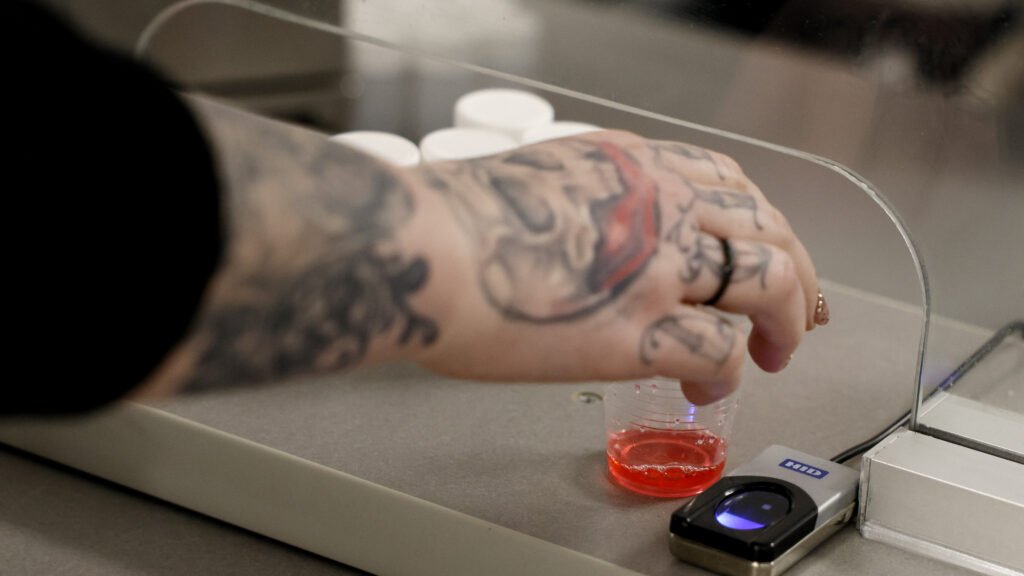A coalition of advocacy groups, including prominent organizations such as the American Society of Addiction Medicine and the R Street Institute, have come together to urge the Trump administration to utilize the U.S. DOGE Service to expand access to methadone for the treatment of opioid addiction. This unexpected request aims to leverage the Department of Government Efficiency’s deregulation efforts to eliminate existing restrictions that hinder patient access to this crucial medication.
Methadone, a long-standing medication used to combat opioid addiction, has faced challenges due to its classification as an opioid and the associated risks of misuse and overdose. Despite its effectiveness in reducing opioid-related deaths, methadone is often underutilized and stigmatized. The current regulations surrounding methadone treatment require patients to visit specialized clinics for daily doses, attend counseling sessions, and undergo frequent drug testing, creating barriers to access and autonomy for both patients and practitioners in addiction medicine.
In a letter addressed to key officials such as Attorney General Pam Bondi and Derek Maltz of the Drug Enforcement Administration, the advocacy groups argue that the strict regulations surrounding methadone treatment create unnecessary bureaucratic hurdles that limit patient choices and impede the effectiveness of addiction treatment. The signatories of the letter include esteemed organizations like the National Community Pharmacists Association, American Society of Health-System Pharmacists, and National Commission on Correctional Health Care.
Currently, methadone treatment is primarily available at specialized clinics across the country, with limited flexibility for patients and providers. While recent regulatory updates have aimed to provide more freedom for clinics to customize treatment plans, individual states and providers can still enforce stringent requirements, hindering the impact of these changes. The advocacy for expanded access to methadone represents a novel approach to addressing the ongoing debate surrounding opioid addiction treatment.
The letter highlights the Trump administration’s commitment to deregulation and cites an executive order encouraging federal agencies to eliminate regulations that do not align with the original intent of Congressional laws. By allowing doctors to prescribe methadone directly to patients, the groups argue that federal agencies could effectively remove unnecessary barriers to access without the need for legislative action. Despite previous bipartisan efforts to expand methadone access, such as the Modernizing Opioid Treatment Access Act, progress has been limited, especially with a Republican-controlled Senate.
While the Trump administration has shown support for medications like methadone and buprenorphine as part of opioid treatment, concrete policy reforms have yet to materialize. Officials have acknowledged the importance of these medications in combating opioid use disorder, emphasizing the need for accessibility and effectiveness in treatment options. The advocacy groups’ letter concludes with a plea for deregulation as a means to combat illicit drug trafficking and trans-border crime, positioning expanded methadone access as a tool to address broader public health and safety concerns.
In conclusion, the push for expanded access to methadone reflects a nuanced approach to addressing the complex challenges of opioid addiction treatment. By leveraging the principles of deregulation and autonomy in healthcare, the advocacy groups aim to empower practitioners and patients in the fight against opioid misuse and overdose. The integration of methadone access into mainstream healthcare services could have far-reaching implications for public health and safety, marking a significant step towards a more comprehensive approach to addiction treatment. The Importance of Mental Health in Everyday Life
Mental health is a crucial aspect of our overall well-being that often goes overlooked. In today’s fast-paced and stressful world, it is more important than ever to prioritize our mental health and take steps to ensure that we are taking care of ourselves both physically and mentally.
One of the reasons why mental health is so important is because it directly impacts our day-to-day functioning. When we are struggling with our mental health, it can be difficult to concentrate, make decisions, or even complete simple tasks. This can have a negative impact on our work, relationships, and overall quality of life.
Additionally, mental health issues such as anxiety and depression can also have physical symptoms, such as headaches, stomachaches, and fatigue. These physical symptoms can further impact our ability to function and can lead to a vicious cycle of poor mental and physical health.
Taking care of our mental health is also important for our relationships with others. When we are struggling with our mental health, it can be difficult to connect with others and maintain healthy relationships. This can lead to feelings of isolation and loneliness, which can further exacerbate mental health issues.
There are many ways to prioritize our mental health in our everyday lives. One of the most important things we can do is to practice self-care. This can include activities such as exercise, meditation, spending time with loved ones, and engaging in hobbies that bring us joy.
It is also important to seek help when we are struggling with our mental health. This can include talking to a therapist or counselor, reaching out to friends and family for support, or even seeking medication if necessary. It is important to remember that it is okay to ask for help and that seeking help is a sign of strength, not weakness.
In conclusion, mental health is a crucial aspect of our overall well-being that should not be overlooked. By prioritizing our mental health and taking steps to care for ourselves, we can improve our day-to-day functioning, relationships with others, and overall quality of life. Remember, it is okay to ask for help and prioritize your mental health in your everyday life.


